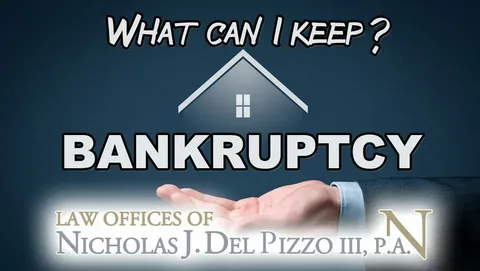Florida Bankruptcy Exemptions Made Simple: Understanding What You Can Keep
Filing for bankruptcy in Florida raises many questions. One of the first you will face is: what can you protect from creditors? Florida provides a series of bankruptcy exemptions intended to prevent the seizure or sale of specific property. This guide explains those exemptions in clear, straightforward terms. If you are in Tampa and seeking relief, a Tampa bankruptcy attorney can help you apply these rules wisely.
What Are Bankruptcy Exemptions?
Exemptions are laws that allow a debtor to retain certain property despite filing for bankruptcy. The property of the bankruptcy estate typically includes everything you own, but exemptions function to remove some items from what a bankruptcy trustee can touch. In Florida, state exemptions generally apply.
Homestead Exemption
Florida’s homestead exemption is famously generous. If the property is your primary home, you may exempt unlimited equity, subject to two limits: acreage and how long you have owned it.
- Acreage limits: If your home lies inside a municipality, the limit is one-half acre. Outside a municipality, the limit is 160 contiguous acres.
- Ownership duration: To claim full protection, you must have owned the home for at least 1,215 days before filing bankruptcy. If you do not meet that requirement, federal bankruptcy law may impose a cap.
Personal Property and Wildcard Exemptions
Florida allows debtors to protect certain personal property. This includes furniture, clothing, electronics, household goods, etc.
- The standard exemption for personal property (not including homestead) is $1,000.
- If you do not claim the homestead exemption, you may use a “wildcard” exemption, giving you up to $4,000 (double this if filing jointly with a spouse).
Motor Vehicle Exemption
A specific exemption applies to your car. Florida law permits you to exempt up to $1,000 in vehicle equity. If you have claimed no homestead exemption, you might combine the wildcard exemption to increase protection of your vehicle’s value.
Wages and the Head-of-Family Exemption
Florida protects some portion of wages under state law. The statute governing this protection is Section 222.11. If you are a “head of family” (i.e., you provide more than half the support for a dependent), your earnings up to $750 per week are fully exempt from garnishment or seizure. If your pay exceeds that amount; only the excess may be taken unless you waive the protection in writing.
Wages deposited into your bank account remain protected for six months after deposit, provided you can trace them.
Retirement Accounts, Public Benefits, Insurance, and Other Exemptions
Florida law shields many kinds of financial and benefit-based assets.
- Retirement accounts such as IRAs, 401(k)s, 403(b)s, and teacher/police/firefighter pensions are exempt.
- State and federal benefits such as Social Security, unemployment, veterans’ benefits, and workers’ compensation are protected.
- Life insurance proceeds (if payable to a specific beneficiary), annuity contracts, cash surrender value of insurance policies, medical savings, health aids, prepaid funeral expenses, and prepaid college savings are among the items exempt under Florida statutes.
Some Limits and Special Rules
While Florida exemptions are generous, certain conditions or limits apply.
- Only “natural persons” may claim homestead protection under bankruptcy law. If property is held in an LLC or irrevocable trust, protection may be lost.
- If you have not lived in Florida long enough before filing, some exemptions may not apply in full.
- Failure to properly list or schedule exemptions (and the value of assets) may result in losing them. Courts may require proof or tracing of deposited wages or other property.
If you live in Florida and are considering bankruptcy, understanding these exemption rules can make a critical difference in what you keep. The homestead exemption, personal property and vehicle exemptions, wage protections, and other statutes provide a structure that often allows debtors to preserve their homes, basic possessions, and income. To apply exemptions correctly in your case or to address special circumstances, seek guidance from a firm experienced in bankruptcy law, such as Weller Legal Group. As your Tampa bankruptcy attorney, they can help ensure you use every exemption properly to protect what matters most.






